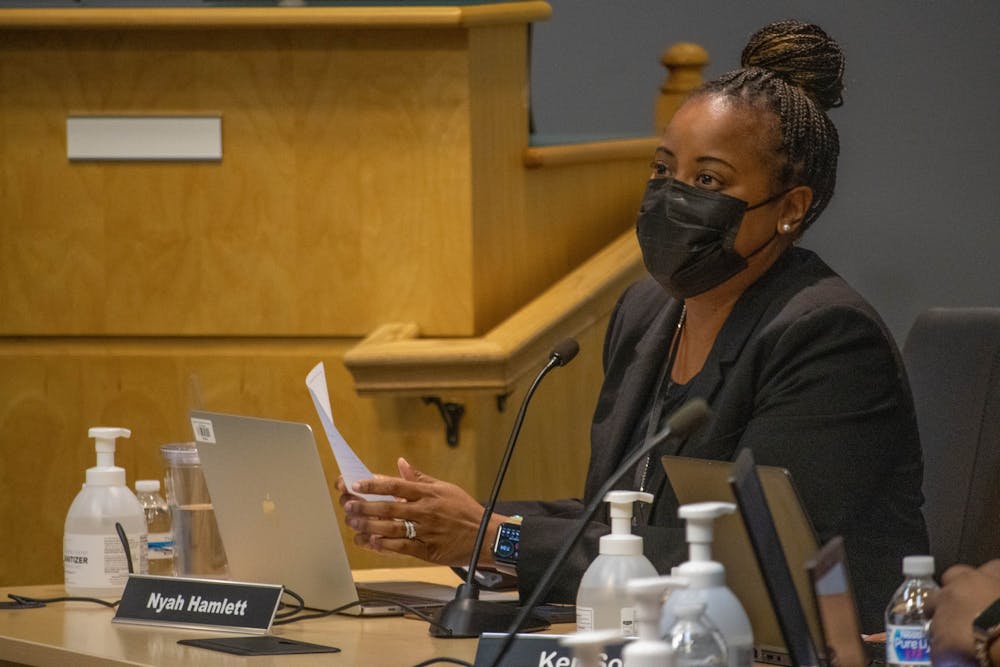The Chapel Hill-Carrboro City Schools Board of Education called a special meeting to discuss the superintendent evaluation process on Sept. 30.
Developed by the North Carolina Department of Public Instruction, the superintendent evaluation process is conducted within school districts annually. The board discussed how to use the superintendent evaluation process to set further goals and build a relationship between board members and the superintendent.
Ken Soo, a public school law expert, led a training for the school board about the process of filling out the state's evaluation rubric, which uses seven standards to gauge the success and potential objectives of superintendents.
“You really get to use these descriptions of practices in adapting them to the goals you set,” Soo said. “If you have an equity-focused goal, that informs these items that you’re going to be looking at on the evaluation instrument.”
Board chairperson Jillian La Serna stressed the importance of a positive, cooperative relationship between the board and Superintendent Nyah Hamlett during the evaluation process.
“To be sure that there’s a common understanding, if the superintendent is identifying this element as part of the professional goals for the school year, what would Dr. Hamlett think that looks like?” La Serna said. “And then what does that look like to the board?”
The superintendent evaluation process is intended to be cyclical, with superintendent self-evaluation, ratings by the board, board and superintendent meetings and yearly goal-setting.
Hamlett entered CHCCS during a challenging time for school systems, with schools transitioning online due to COVID-19 and student performance on state assessments dropping during the 2020-21 school year.
This is Hamlett's first year completing the evaluation process with the CHCCS Board of Education, meaning they do not have rubric-based goals from a previous year to reference.




